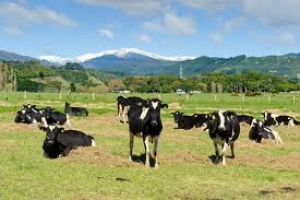The Solutions for dairy sector
Fairer Deal For Dairy Farmers: New Rules Agreed

The key aim of the proposed regulation, introduced at the request of the European Parliament after the 2009 milk crisis, is to boost dairy farmers' bargaining power, ensure fairer prices for raw milk they produce and thus help them to prepare for the end of milk quotas in 2015.
New rules will allow producers' organisations to negotiate raw milk prices for the farmers they represent. MEPs also inserted a provision for supply management regimes for certain geographically protected quality cheeses.
"We have achieved the central aim of this package - to introduce measures, such as establishing producers' organisations, which will allow producers to organise themselves better and strengthen their position in the dairy supply chain," said Parliament's rapporteur James Nicholson (ECR, UK), the head of the Agriculture Committee negotiating team.
"I very much welcome the agreement as a result of good cooperation among the Parliament, the Polish Presidency of the Council and the Commission. This is the first important trialogue after the Lisbon Treaty and it sets a good example of how three institutions can work together in the future," said Agriculture Committee chair Paolo de Castro (S&D, IT).
More bargaining power
To ensure fair competition, the volume of raw milk covered by negotiations between producers' organisation and processors or collectors may not exceed 3.5 per cent of total EU output. Nor may it exceed either 33 per cent of overall national production or 45 per cent in states where total production amounts to less than 500,000 tonnes.
Compulsory contracts must state prices
Member States may continue to decide whether or not to impose contracts covering milk delivery from farmers to collectors or processors for their territory.
However, where Member States do choose to impose compulsory contracts for milk supplies, these contracts must state the price. Member States may also stipulate a minimum duration for these contracts of at least six months, says the agreed text, and MEPs strongly recommend that they do so.
But if a dairy farmer refuses a proposed contract duration, the parties to a contract will be free to negotiate all parts of it.
Any compulsory contracts or written offers for such contracts will also have to be drawn up before delivery, and must include certain items such as the price to be paid for the raw milk (which must take market indicators into account), payment periods and arrangements for collecting and delivering the milk.
Milk from less-favoured areas
To ensure that dairy farmers in less-favoured areas also benefit from the new arrangements, MEPs asked the Commission to produce two reports assessing their situation, one by July 2014 and the other by the end of 2018.
Quality cheese supply management
To improve the working of the market for cheeses registered under a protected designation of origin (PDO) or protected geographical indication (PGI) and to improve their quality, MEPs inserted a provision for a supply management system, which Member States may establish provided that it in no way harms competition on the single market or leads to small cheese producers being adversely affected.
To ensure that it represents the wishes of enough dairy farmers, any proposal for a supply management system must be backed by at least two thirds of those delivering at least two thirds of the milk destined for the production of such quality cheeses.
Next Steps
The results of the "trialogue" negotiations will be presented to the Agriculture Committee MEPs on 20 December. Parliament's plenary vote is foreseen for February 2012.
The new regulation, which builds on a recommendation by the High Level Group on Milk after the 2009 dairy crisis, will enter into force in 2012, after it is endorsed by both Parliament and the Council. It will apply until the end of June 2020.
The rules on contracts, collective negotiations via producers' organisations and the supply management regime for quality cheeses will take effect six months after the regulation's entry into force. The rules on recognition of producers' organisations and "interbranch" organisations (representing producers, traders and processors) will apply as soon as the regulation is adopted.




















